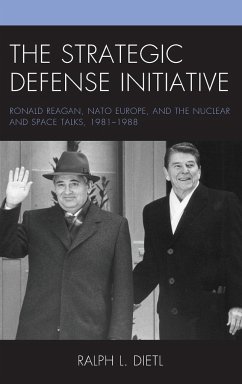The Nuclear and Space Talks revolutionized arms control. The Cold War endgame commenced with the umbrella negotiations' that linked START and INF negotiations to a regulation on the weaponization of space. This volume reveals a US grand strategy to replace deterrence with a collective security order. An entente of the superpowers was needed to transform bipolarity. The US planned the replacement of mutually assured destruction by mutually assured security. A global astrodome was to protect a nuclear disarmed world. The Franco-German special relationship in European affairs had to be amended by a US-SU special relationship to replace classic bloc politics. The Reagan Administration planned a global zero agenda, a joint development of a global protective system and a creation of a Common House of Europe. In brief, the superpowers prepared 'the velvet revolution' that eliminated the Cold War structures. Neither containment nor convergence offers a valid explanation of the Cold War endgame. Co-creation is the key to decipher the end of the Cold War. NATO Europe challenged the transformation of bipolarity. The European NWS resisted to a multilateralization of strategic arms control. In Europe the classic Cold War thinking survived the fall of the Iron Curtain. European conservatism contributed to the geopolitical catastrophe of the first order: the downfall of the Soviet Union. The Reagan Administration developed a Grand Strategy to end the Cold War. The US-SU co-creation of an astrodome was meant to ease a global zero agenda. A global collective security structure under the United Nations was to replace deterrence. The superpower project collapsed due to the penetration of US decision-making by NATO Allies. The European NWS totally objected to a multilateralization of strategic arms control to preserve their relative position in the international system.
Hinweis: Dieser Artikel kann nur an eine deutsche Lieferadresse ausgeliefert werden.
Hinweis: Dieser Artikel kann nur an eine deutsche Lieferadresse ausgeliefert werden.








